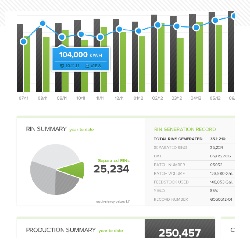 In a bid to better meet the needs of customers, the biodiesel industry sought out and gained approval of a new voluntary No. 1-B grade for B100 from the ASTM D2 Committee on Petroleum Products and Lubricants. This news release from the National Biodiesel Board says the new standard will help make the green fuel better for customers with Ultra-Low Sulfur Diesel (ULSD) and new diesel engine and after-treatment technology:
In a bid to better meet the needs of customers, the biodiesel industry sought out and gained approval of a new voluntary No. 1-B grade for B100 from the ASTM D2 Committee on Petroleum Products and Lubricants. This news release from the National Biodiesel Board says the new standard will help make the green fuel better for customers with Ultra-Low Sulfur Diesel (ULSD) and new diesel engine and after-treatment technology:
“The biodiesel industry took a proactive stance to improve the standards governing America’s Advanced Biofuel,” said Joe Jobe, CEO of the National Biodiesel Board. “For the large majority of biodiesel users, the current standard along with conventional industry management practices allow for biodiesel blend use year-round, even in extreme climates.” ASTM D6751, the ASTM standard for pure biodiesel (B100) prior to blending, was modified to create a new voluntary No. 1-B grade. The new grade provides more stringent controls for minor components in raw materials used to make biodiesel, such as vegetable oils and animal fats. The specification values of the current standard will become the No. 2-B grade in D6751 without change. Producers or blenders can continue to utilize the current specification under the No. 2-B grade at any time of the year exactly as done today, or they may opt to use the more stringent No 1-B grade. The finished blended fuel standards—D975 for on/off road diesel up to 5% biodiesel (B5), D7467 for B6-B20 on/off road applications, and D396 for heating oil up to 5% biodiesel—do not change. B100 used for D975, D7467, and D396 must continue to meet D6751 (either the No. 1-B or the No. 2-B grade) prior to blending.
The No. 1-B and No. 2-B designations are in line with the current No. 1 and No. 2 diesel fuel categories. This new designation stems from a handful of cases with the new Ultra Low Sulfur Diesel fuel experiencing un-expected filter clogging above the cloud point of the finished blend.














